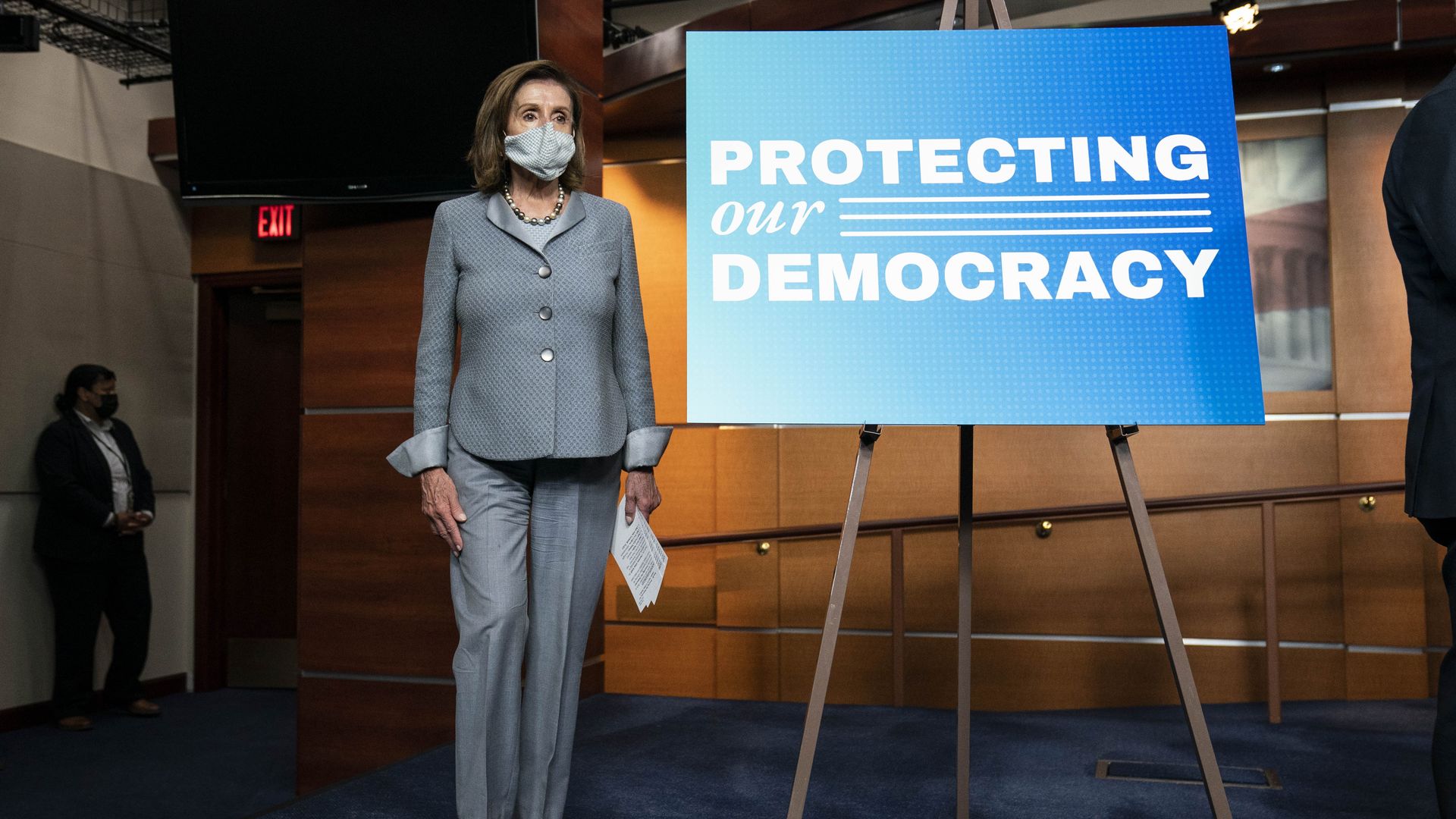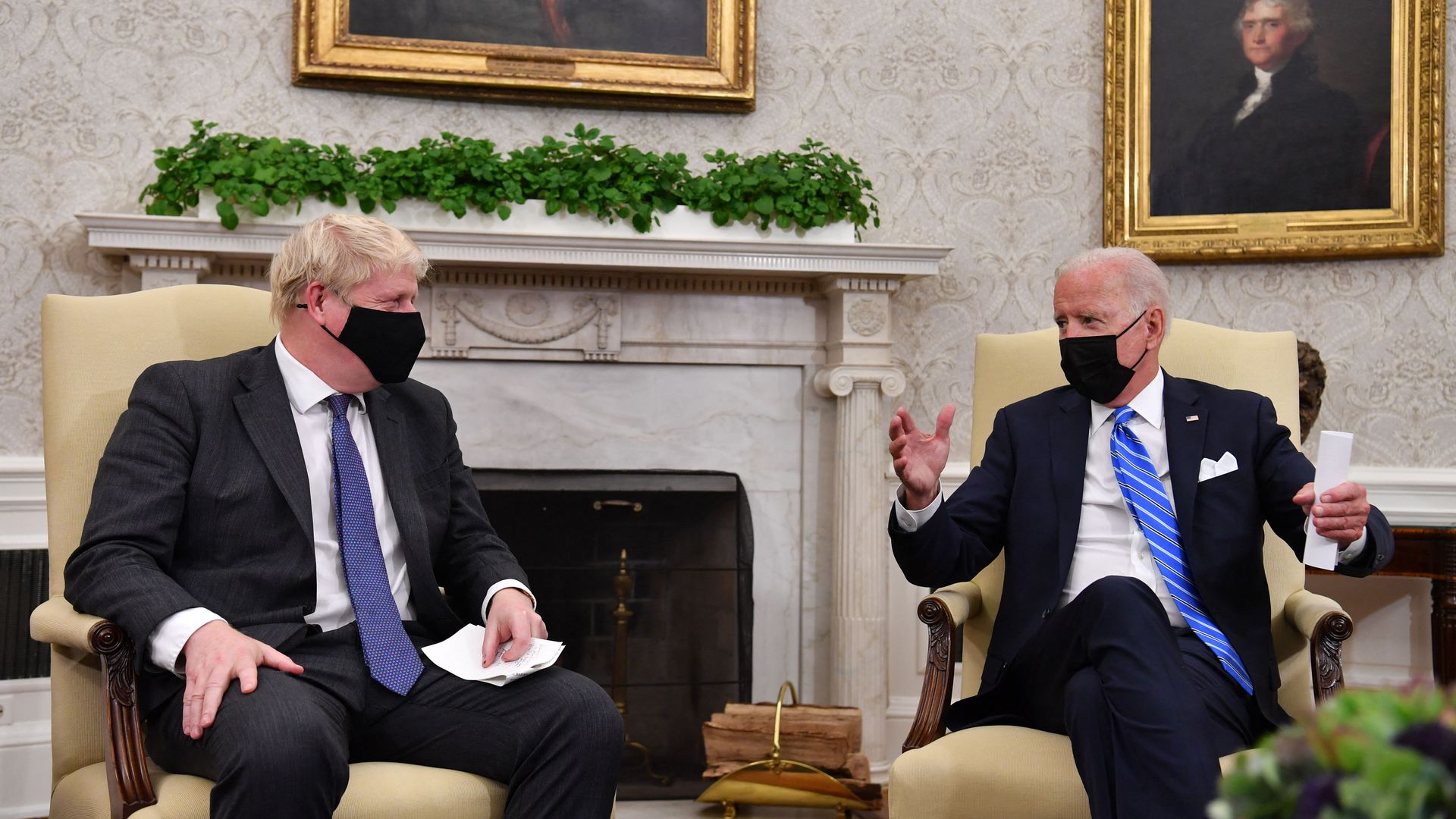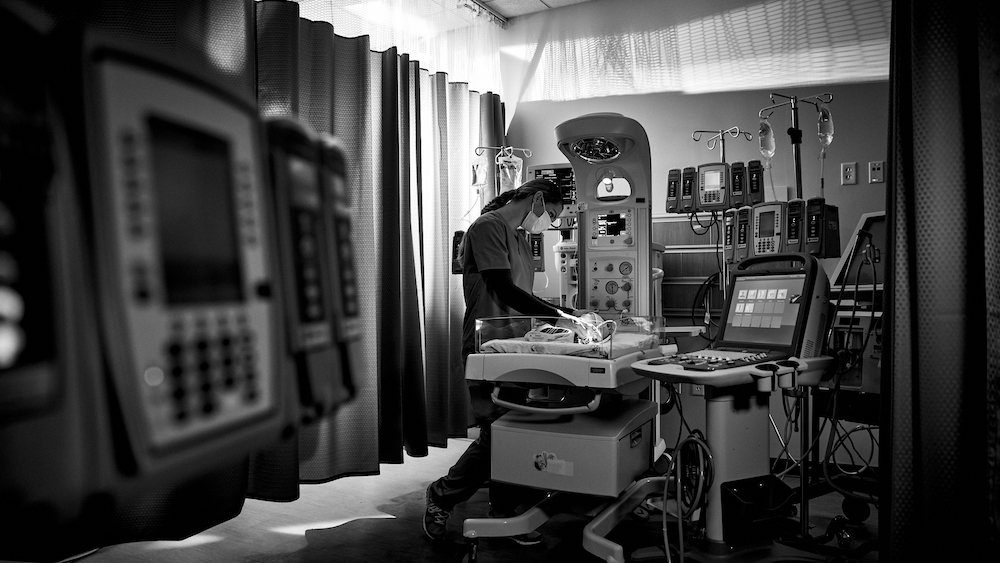| | | | | | | Presented By HCA Healthcare | | | | Axios Sneak Peek | | By the Axios Politics team ·Sep 21, 2021 | | Welcome back to Sneak. 📅 Join Axios' Mike Allen and Ben Geman tomorrow at 12:30pm ET for a virtual event about the bold commitments being made to combat climate change. Guests include White House national climate adviser Gina McCarthy and Environmental Defense Fund president Fred Krupp. Register. Smart Brevity™ count: 1,498 words ... 5.5 minutes. Edited by Glen Johnson. | | | | | | 1 big thing: Scoop - U.S. government buying risky Chinese drones |  | | | Illustration: Aïda Amer/Axios | | | | Federal law enforcement agencies are purchasing surveillance drones from a Chinese company the Pentagon has deemed a potential national security threat, Axios' Lachlan Markay has learned. Why it matters: Efforts to purge military and law enforcement agencies of potentially compromised Chinese technology have stalled amid bureaucratic red tape, and experts worry the federal government is needlessly exposing itself to snooping by malicious foreign actors. Driving the news: The U.S. Secret Service is the latest to purchase surveillance drones from the Shenzhen-based company DJI, which dominates the commercial drone market in the U.S. and abroad. - The Secret Service bought eight DJI drones on July 26, according to procurement records obtained by the industry publication IPVM and shared with Axios.
- That was three days after the Defense Department released a statement saying DJI products "pose potential threats to national security."
- The FBI bought 19 DJI drones a few days earlier, records show.
The context: DJI makes an array of consumer products that are tremendously popular, including the Phantom and Mavic drone series, as well as the Osmo image-stabilization handle. - While the products are used for personal and commercial purposes, they also require the user to download proprietary DJI software, and to fly using mapping databases that have the potential to be monitored remotely.
- Security concerns surrounding these products are longstanding.
In 2017, the Department of Homeland Security — the Secret Service's parent agency — stated with "moderate confidence" that DJI was "providing U.S. critical infrastructure and law enforcement data to the Chinese government." - In 2019, the Interior Department, which also uses DJI products, grounded its entire non-emergency drone fleet because of concerns about Chinese government intrusions.
- The Commerce Department added DJI to an export blacklist last year after Bloomberg reported it had supplied surveillance technology to Chinese security forces in Xinjiang, where millions of Uighur Muslims have been forced into internment camps.
What they're saying: "DJI's cyber security vulnerabilities are well documented," Sen. Marco Rubio (R-Fla.), who has pressed for greater scrutiny of contractors with Chinese government ties, told Axios. - "Given everything we know about the Chinese Communist Party and its companies, there is absolutely no excuse for any government agency to use DJI drones, or any other drones manufactured in countries identified as national security threats," Rubio wrote in an emailed statement.
- The Secret Service declined to comment, citing operational security. The FBI also declined to comment.
- DJI did not respond to requests for comment on its federal contracts or the Pentagon's characterization of the company.
Keep reading. |     | | | | | | 2. Pelosi's endgame |  | | | House Speaker Nancy Pelosi appears at a news conference today. Photo: Sarah Silbiger/Bloomberg via Getty Images | | | | House Speaker Nancy Pelosi (D-Calif.) began her infrastructure endgame today, pressuring centrists to ultimately support as much social spending as possible while pleading with progressives to pass the roads-and-bridges package preceding it, Axios' Sarah Mucha and Hans Nichols write. Why it matters: Neither group can achieve what it wants without the other, their ultimatums be damned. The leaders of both acknowledged the speaker's unique gift for pulling off a deal after separate conversations with Democratic leaders. - "I'm optimistic — not only that it will be brought to the floor but that we will have the votes on Monday," said Rep. Josh Gottheimer (D-N.J.), who led centrist efforts to get Pelosi to promise a vote on the $1.2 trillion bipartisan "hard" infrastructure bill by Sept. 27.
- The speaker also is leaning on the progressives for raw numbers, meeting today with Rep. Pramila Jayapal (D-Wash.), chairwoman of the Congressional Progressive Caucus.
- Over half of Jayapal's group has pledged not to vote for the bipartisan bill if Pelosi doesn't hold a simultaneous vote on the $3.5 trillion "soft" infrastructure focused on expanding the social safety net — meaning the speaker has to turn an estimated 25 "no" votes into "yes" ones.
- "Speaker Pelosi will get it done," said Rep Dutch Ruppersberg (D-Md.). "You have to let her do her Baltimore thing."
Between the lines: By reiterating their intent to bring the infrastructure package to the floor by Monday, Pelosi and House Majority Leader Steny Hoyer (D-Md.) are putting pressure — simultaneously — on the two biggest wings of the Democratic Party. - Hoyer was clear during a briefing with reporters this morning: He will put the $1.2 trillion bill on the floor Sept. 27 or Sept. 28 — next Monday or Tuesday.
- Meanwhile, Hoyer promised to consider the $3.5 trillion package "as soon as it's ready" — a nod to the reality the Senate still has some heavy lifting to do on a bill that will pass each chamber only with Democratic votes.
- Later today, Senate Majority Leader Chuck Schumer (D-N.Y.) acknowledged that package won't be done by next week.
The big picture: The White House also is ramping up the pressure, specifically targeting the centrists. - Brian Deese, director of the National Economic Council, and Louisa Terrell, the head of the Office of Legislative Affairs, met with the New Democrat Coalition today.
- President Biden will host a series of meetings tomorrow with House members and senators across the ideological spectrum of the Democratic Party — including centrists — to hear their perspectives and make the case for his agenda on infrastructure, a source familiar with the plans told Axios.
Keep reading. |     | | | | | | 3. By the numbers: Haitian enclaves |  The Biden administration is planning to deport six planeloads of Haitians tomorrow, a big jump in the number of flights per day, the International Organization for Migration chief of mission in Haiti told Axios' Stef Kight. Between the lines: Fewer than 10,000 Haitians are now at an encampment in Del Rio, Texas, after a sudden influx during the past week, Homeland Security Secretary Alejandro Mayorkas told senators today. - Many Haitians being deported haven't lived on the island for years and will arrive as the nation still struggles after an earthquake and a presidential assassination.
- For any allowed to stay in the United States, there are several hubs of Haitian Americans — with nearly 70% living in Florida and New York alone as of 2018, according to data from Migration Policy Institute.
|     | | | | | | A message from HCA Healthcare | | How HCA Healthcare identifies new ways to improve patient care | | |  | | | | HCA Healthcare uses data from more than 32 million annual patient encounters to research and create innovative tools to improve patient outcomes. What this means: Their findings change how care is delivered everywhere, helping clinicians discover and provide advanced, personalized care. | | | | | | 4. The Democrats' debt dilemma |  | | | Illustration: Aïda Amer/Axios | | | | Democrats find themselves in a political and potentially catastrophic economic quagmire as Republicans stand firm on denying them any help in raising the federal debt ceiling, writes Axios' Alayna Treene. Why it matters: The Democrats are technically right — the debt comes, in part, from past spending by President Trump and his predecessors, not only Biden's new big-ticket programs. But Senate Minority Leader Mitch McConnell (R-Ky.) is saddling them with the public relations challenge of making that distinction during next year's crucial midterms. - Just as he did by delaying the Supreme Court nomination of Merrick Garland, McConnell is creating his own justification. He insists Democrats have to raise the ceiling themselves, since they control not only the White House but both chambers of Congress.
- Never mind that Democrats helped GOP lawmakers suspend the debt ceiling three times during the Trump administration, including to help pay for a $2 trillion tax cut McConnell shepherded through a Republican Congress and onto the Republican president's desk, as well as coronavirus relief bills that cost more than $3 trillion.
- The risk now — however remote — is that the federal government will default on its debt. Since that would cause irreparable damage to the economy and global financial markets, Democrats are unlikely to let that occur — ultimately forcing them to do what McConnell wants.
As Lachlan and Hans reported Sunday, conservative groups are preparing huge ad-buys going after vulnerable House Democrats over tax increases and other revenue measures in Biden's massive $3.5 trillion infrastructure spending bill. - The Democrats themselves are divided on the current spending, only adding to the confusion that voters confront now and as they weigh congressional candidates next fall.
- "Progressives are demanding the centrists support the $3.5 trillion, Democrat-only bill before the progressives vote to pass the $1.2 trillion bipartisan infrastructure package that's already passed the Senate," Lachlan and Hans wrote.
Senate Democrats are making their case, but their Republican colleagues have yet to offer any hope of blocking McConnell's plan. - Sen. Angus King (I-Maine): "It's exactly like charging something on your credit card, and then not paying the credit card bill when it comes. ... This is to pay for spending that many of them voted for over the last several years."
- Sen. Tim Kaine (D-Va.): "I have been saying we should [raise the debt ceiling] in reconciliation and I continue to believe that." Kaine said he doesn't know why Democratic leaders are so adamant about getting Republicans to vote for it.
- Sen. Kevin Cramer (R-N.D.): "I think he's handling it perfectly," referring to McConnell.
- Sen. John Barrasso (R-Wyo.): "Every other time the debt ceiling has been raised, it involves bipartisan discussion on how to get spending under control. ... There should be discussions of how to get spending under control — not full speed ahead with another few trillion."
|     | | | | | | 5. Pic du jour: Foreign and kitchen-table issues |  | | | Photo: Nicholas Kamm/AFP via Getty Images | | | | President Biden met with British Prime Minister Boris Johnson after his counterpart took an Amtrak train to Washington from the United Nations General Assembly. Photo: Mandel Ngan/AFP via Getty Images Vice President Kamala Harris discussed family-care issues with Jamie Smith in the kitchen of her Washington, D.C., home. |     | | | | | | A message from HCA Healthcare | | HCA Healthcare invests in high-tech clinical centers to advance care | | |  | | | | HCA Healthcare supports caregivers in many ways, including through their Centers for Clinical Advancement, which provide highly interactive, practice-based instruction. Why it's important: These innovative educational centers help improve colleagues' clinical skills and patient care. | | | | 📬 Thanks for reading. A reminder that your family, friends and colleagues can subscribe to Sneak or any of Axios' free newsletters through this link. |  | | It'll help you deliver employee communications more effectively. | | | | | | Axios thanks our partners for supporting our newsletters. If you're interested in advertising, learn more here.
Sponsorship has no influence on editorial content. Axios, 3100 Clarendon Blvd, Suite 1300, Arlington VA 22201 | | | You received this email because you signed up for newsletters from Axios.
Change your preferences or unsubscribe here. | | | Was this email forwarded to you?
Sign up now to get Axios in your inbox. | | | | Follow Axios on social media:    | | | | | |










No comments:
Post a Comment